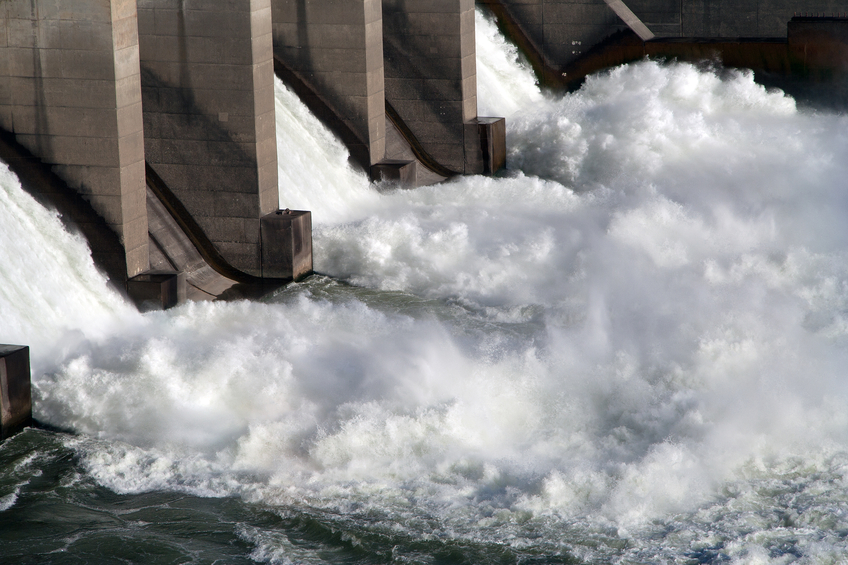Alt./Ren. Energy 30 PDH Discount Package
Courses in this Package
An Introduction to Design of Solar Water Heating Systems (R03-004)
An Introduction to Passive Solar Buildings (M02-020)
An Introduction to Planning Solar Water Heating Systems (R02-009)
An Introduction to Solar Energy System Fundamentals (R02-008)
Concentrating Solar Power and Water Use (R02-001)
Overview of Geothermal Energy (R01-001)
Wind Energy Assessment (M06-002)
Solar Energy and Its Applications (R02-015)
Renewable Energy from the Ocean (R02-007)
Solar Energy Fundamentals (M04-018)
Wind Turbine Technology (R04-009)

This online engineering PDH course presents the information required to design a solar energy water heating system, after planning and system selection have been completed. The design of the principle sub-systems, including collectors, storage and controls, are discussed.
This 3 PDH online course is intended for mechanical engineers and other design and construction professionals interested in an introduction to the design of solar water heating systems.
This PE continuing education online PDH course is intended to provide you with the following specific knowledge and skills:
- Learning about solar absorber construction and components
- Learning how to design collector manifolds
- Understanding the benefits of, and how to design, a reverse-return system
- Understanding the benefits and drawbacks of internally and externally manifolded collectors
- Knowing the fundamentals of solar collector selection and specification
- Learning about flow balancing for collector arrays
- Understanding the importance of, and how to do, pressure drop calculations
- Learning how to design and specify the collector, transport, storage and control sub-system
In this professional engineering CEU course, you need to review the course document titled, "An Introduction to Design of Solar Water Heating Systems".
Upon successful completion of the quiz, print your Certificate of Completion instantly. (Note: if you are paying by check or money order, you will be able to print it after we receive your payment.) For your convenience, we will also email it to you. Please note that you can log in to your account at any time to access and print your Certificate of Completion.

This online engineering PDH course provides guidance on passive solar technology for heating buildings. It discusses basic passive solar heating systems for buildings including direct gain heating, daylighting, radiant panels, thermosiphoning air panels, thermal storage walls, sunspaces, and incremental cooling load. It describes climatic considerations including characteristic weather parameters, climate-driven conservation measures, and solar availability to determine feasibility of cost-effective passive solar systems at specific project sites. It presents guidelines for schematic design of passive solar building heating systems including building shape and orientation, non-south windows, passive heating system characteristics, sizing overhangs, insulation levels, infiltration, solar collection areas, and thermal storage mass.
Passive solar energy is one of the most efficient forms of energy in the world. Not only does it reduce the cost of energy for your company, agency or clients, it reduces the demand on limited global energy supplies and avoids carbon emissions and other global environmental impacts associated with energy production and utilization.
This 2 PDH online course is intended for civil, structural, mechanical, electrical and architectural engineers who are involved in the design, construction, operation and maintenance of solar passive buildings and related infrastructure.
This PE continuing education course is intended to provide you with the following specific knowledge and skills:
- Learn about direct gain heating systems
- Learn about radiant panel systems
- Learn about thermosiphoning air panel systems
- Learn about thermal storage walls
- Learn about sunspaces
- Learn about characteristic weather parameters
- Learn about climate and conservation measures
- Learn about solar availability
- Learn about guidelines for schematic design
In this professional engineering CEU course, you need to review the course document titled: "An Introduction to Passive Solar Buildings".
Upon successful completion of the quiz, print your Certificate of Completion instantly. (Note: if you are paying by check or money order, you will be able to print it after we receive your payment.) For your convenience, we will also email it to you. Please note that you can log in to your account at any time to access and print your Certificate of Completion.

This online engineering PDH course provides guidance for the planning of active solar energy systems to preheat domestic and service water. The systems treated by this document are liquid based. Guidelines apply to the larger commercial-scale applications that require an effort on the part of the designer, as opposed to residential-sized "packaged" systems, which in the past have been available from a number of manufacturers. The concepts developed in this document are targeted for new construction, although most are also appropriate for retrofit applications.
This 2 PDH online course is intended for mechanical engineers and other infrastructure design and construction professionals seeking an introduction to planning solar water heating systems for buildings and related facilities.
This PE continuing education course is intended to provide you with the following specific knowledge and skills:
- Learning how to evaluate the feasibility of designing and installing an active solar preheat system using the Solar Payback screening tool developed by the Construction Engineering Research Laboratory (CERL)
- Learning about closed-loop solar energy system
- Learning about the fundamental components of the solar loop in a closed loop solar energy system
- Learning about piping and component corrosion and maintenance issues that are a common cause of closed-loop system failure
- Learning about the direct circulation system for solar energy water heating
- Learning about freezing issues in direct circulation systems
- Learning about site location, freezing days, estimated load size and water quality issues in system selection
- Learning about system layout at the planning level
In this professional engineering CEU course, you need to review the course document titled, "An Introduction to Planning Solar Water Heating Systems".
Upon successful completion of the quiz, print your Certificate of Completion instantly. (Note: if you are paying by check or money order, you will be able to print it after we receive your payment.) For your convenience, we will also email it to you. Please note that you can log in to your account at any time to access and print your Certificate of Completion.

This online engineering PDH course provides an introduction to solar energy system fundamentals. A solar thermal energy collection system (or "solar system" for short) is defined as a set of equipment that intercepts incident solar radiation and stores it as useful thermal energy to offset or eliminate the need for fossil fuel consumption. Four basic functions are performed by a typical solar system and are discussed in this course.
This 2 PDH online course is intended for mechanical engineers and other infrastructure design and construction professionals seeking an introduction to the fundamentals of solar water heating systems for buildings and related facilities.
This PE continuing education course is intended to provide you with the following specific knowledge and skills:
- Learning about the four basic functions performed by a typical solar system
- Learning about the components of the collector sub-system which intercepts incident solar radiation and transfers it as thermal energy to a working fluid
- Learning about the elements of the storage sub-system which retains collected thermal energy for later use by the process load
- Learn how the transport sub-system delivers energy from the collectors to storage
- Learn how the control sub-system determines when enough energy is available for collection, and activates and controls the entire system to collect this energy until it is no longer available as a net energy gain
- Learn about heating domestic hot water and low-temperature process water, which will normally be the most thermally efficient means of using solar energy
- Learning about the basic material considerations in solar energy systems
- Learning about flat-plate solar collectors, which are the most common type used
In this professional engineering CEU course, you need to review the course document titled, "An Introduction to Solar Energy System Fundamentals".
Upon successful completion of the quiz, print your Certificate of Completion instantly. (Note: if you are paying by check or money order, you will be able to print it after we receive your payment.) For your convenience, we will also email it to you. Please note that you can log in to your account at any time to access and print your Certificate of Completion.

This online engineering PDH course provides information about four concentrating solar power technologies: parabolic trough, linear fresnel, tower power and dish/engine systems, and a comparison of water usage for these systems with once-through cooling, recirculating evaporative cooling, dry cooling, and hybrid wet/dry parallel cooling systems.
The requirement for cooling water is a major issue in the siting of new thermoelectric power plants, including those powered by solar energy.
This 2 PDH online course is intended for energy, mechanical, electrical, construction, and civil engineers. An attendee of this course will gain knowledge about concentrating solar power technologies, how they compare with each other, their water requirements, and thermoelectric power plant cooling options for use with them.
This PE continuing education course is intended to provide you with the following specific knowledge and skills:
- Be familiar with the principles of operation of and characteristics of a parabolic trough, linear fresnel, power tower, and dish/engine concentrating solar power systems
- Be familiar with the general operating principles of once-through cooling, recirculating evaporative cooling, dry cooling, and hybrid wet/dry cooling for thermoelectric power plants
- Be familiar with the relative water withdrawal and water consumption requirements for once-through cooling, recirculating evaporative cooling, dry cooling, and hybrid wet/dry cooling methods
In this professional engineering CEU course, you need to review the course document titled: "Concentrating Solar Power and Water Use", which is composed of the U.S. Department of Energy (DOE) Report to Congress: "Concentrating Solar Power Commercial Application Study - Reducing Water Consumption of Concentrating Solar Power Electricity Generation".
Upon successful completion of the quiz, print your Certificate of Completion instantly. (Note: if you are paying by check or money order, you will be able to print it after we receive your payment.) For your convenience, we will also email it to you. Please note that you can log in to your account at any time to access and print your Certificate of Completion.

This online engineering PDH course presents basic information regarding geothermal energy, its advantages over traditional energy sources, and the energy savings associated with its use. This course explains the different types of geothermal resources and how they are implemented in the industry, as well as the different types of geothermal power plants used. Furthermore this course highlights the direct uses of geothermal energy and illustrates the benefits of geothermal heat pumps.
This 1 PDH online course is applicable to engineers, contractors, designers, home owners, and personnel who are seeking an understanding of geothermal energy.
This PE continuing education course is intended to provide you with the following specific knowledge and skills:
- Understanding geothermal energy and its benefits
- Learning about the different types of geothermal resources
- Learning about the various geothermal power plants
- Learning about energy savings behind geothermal heat pumps
In this professional engineering CEU course, you need to review the DOE Publication, "Geothermal Energy - Power form the Depths", published by the Department of Energy.
Upon successful completion of the quiz, print your Certificate of Completion instantly. (Note: if you are paying by check or money order, you will be able to print it after we receive your payment.) For your convenience, we will also email it to you. Please note that you can log in to your account at any time to access and print your Certificate of Completion.

This online engineering PDH course describes various resource assessment approaches and recommendations for the use of a formal measurement plan, a monitoring strategy, and a quality assurance plan. It summarizes the most commonly used siting techniques and addresses land leasing and permitting requirements for a measurement tower. It also details the recommended measurement parameters and offers guidelines for incorporating other optional parameters that may benefit your monitoring program.
This course also describes the instrument components of a recommended wind resource monitoring station, including the performance specifications for basic and optional sensors. Finally, it highlights data issues related to in-field raw data storage, retrieval and protection, retrieval frequency, and documentation.
A wind resource assessment program is similar to other technical projects. It requires planning and coordination and is constrained by budget and schedule limitations. It demands a clear set of objectives so the best assessment approach is selected. Its ultimate success rests on the quality of the program's assembled assets including sound siting and measurement techniques, trained staff, quality equipment, and thorough data analysis techniques.
This 6 PDH online course is applicable to mechanical engineers, design and construction personnel, technical staff and facility personnel who are interested in gaining a better understanding of wind energy.
This PE continuing education course is intended to provide you with the following specific knowledge and skills:
- Guiding principles of wind resources assessment
- Site monitoring of wind data collection systems
- Wind measurement parameters
- Wind monitoring station instrumentation
- Installation of wind monitoring stations
- Wind station operation and maintenance
- Wind data collection and handling
- Wind data validation, processing and reporting
In this professional engineering CEU course you will need to review the material contained in Wind Resource Assessment Handbook, AWS Scientific, Inc., NREL Subcontract No. TAT-5-15283-01.
Upon successful completion of the quiz, print your Certificate of Completion instantly. (Note: if you are paying by check or money order, you will be able to print it after we receive your payment.) For your convenience, we will also email it to you. Please note that you can log in to your account at any time to access and print your Certificate of Completion.

This online engineering PDH course presents an overview of solar energy and how to harness it. It discusses the different types of solar collectors and their components. Furthermore, it highlights the advantages and disadvantages of air type versus liquid type of collector medium. It will address the typical issues faced in solar system applications such as corrosion and freezing as well as how to resolve them. Finally, this course describes the different applications of solar energy used in domestic water and space heating systems along with their respective configurations.
The energy that the earth receives from the sun is electromagnetic radiation. Most of the energy is received in the visible and infrared portions and a small amount is received as ultraviolet radiation. Energy from the sun travels approximately 90 million miles in just over 8 minutes to reach earth. If 100 percent of the solar constant were to be collected on an area the size of the United States, we could absorb enough energy in 32 minutes to supply the energy needs of the entire world for a year.
The 2 PDH online course is intended for mechanical engineers, architects, sustainability professionals, construction personnel and developers interested in gaining a better understanding of the basics and applications of solar energy.
This PE continuing education course is intended to provide you with the following specific knowledge and skills:
- Understanding the principles behind solar energy
- Learning about the different types of solar collectors and their components
- Learning about the advantages and disadvantages of air type versus liquid type of collector medium
- Familiarizing with the different methods of corrosion and freeze protection used in solar systems
- Knowing how solar energy is applied to domestic water heating systems and learning about their respective configurations
- Knowing how solar energy is applied to space heating systems and learning about their respective configurations
Upon successful completion of the quiz, print your Certificate of Completion instantly. (Note: if you are paying by check or money order, you will be able to print it after we receive your payment.) For your convenience, we will also email it to you. Please note that you can log in to your account at any time to access and print your Certificate of Completion.

This online engineering PDH course presents an overview of ocean energy technology as a source of renewable energy for U.S. Federal sites. It investigates ocean energy resources and new technologies under development to capture that energy. A brief history of the technologies is presented, as well as each technology's commercial market development status. Benefits and barriers to research and development are also examined along with various devices currently being validated in the field.
This 2 PDH online course is intended primarily for engineers interested in gaining an overview of the production of energy from renewable sources.
This PE continuing education course is intended to provide you with the following specific knowledge and skills:
- Learning about wave, tidal and marine current
- Learning about tidal potential energy and ocean thermal energy conversion
- Learning about the available total energy resources for each type of ocean energy
- Learning about the energy conversion technologies for each type of ocean energy
- Understanding the benefits of each type of ocean energy
- Familiarizing with current projects
In this professional engineering CEU course, you need to review the U.S. Department of Energy (DOE) Office of Energy Efficiency and Renewable Energy document, "Ocean Energy Technology Overview", dated July 2009.
Upon successful completion of the quiz, print your Certificate of Completion instantly. (Note: if you are paying by check or money order, you will be able to print it after we receive your payment.) For your convenience, we will also email it to you. Please note that you can log in to your account at any time to access and print your Certificate of Completion.

In this online engineering PDH course properties of electromagnetic radiation will be discussed and basic calculations for electromagnetic radiation will be described. Several solar position parameters will be discussed along with means of calculating values for them. The major methods by which solar radiation is converted into other useable forms of energy will be discussed briefly. Extraterrestrial solar radiation (that striking the earth's outer atmosphere) will be discussed and means of estimating its value at a given location and time will be presented. Finally there will be a presentation of how to obtain values for the average monthly rate of solar radiation striking the surface of a typical solar collector, at a specified location in the United States for a given month. Numerous examples are included to illustrate the calculations and data retrieval methods presented.
This 4 PDH online course is intended for mechanical and electrical engineers, energy professionals and architects who are interested in gaining a better understanding of solar energy. After completing this course, you will have basic knowledge about solar electromagnetic radiation, will be familiar with fundamental solar parameters, will be able to obtain or calculate values for those parameters and use them in calculations, and will be able to obtain values for average monthly rate of solar radiation striking the surface of a typical solar collector in the United States for a given month.
This PE continuing education course is intended to provide you with the following specific knowledge and skills:
- Know the different types of electromagnetic radiation and which of them are included in solar radiation
- Be able to calculate wavelength if given frequency and frequency if given wavelength for specified electromagnetic radiation
- Know the meaning of absorbance, reflectance and transmittance as applied to a surface receiving electromagnetic radiation and be able to make calculations with those parameters
- Be able to obtain or calculate values for solar declination, solar hour angle, solar altitude angle, sunrise angle, and sunset angle and use them in calculations
- Know the major methods by which solar radiation is converted into other useable forms of energy.
- Be able to obtain an estimated value for monthly averaged extraterrestrial radiation on a horizontal surface for a specified month and latitude between 20 and 65 degrees.
- Be able to obtain values for the average monthly rate of solar radiation striking the surface of a solar collector with one of several standard tilt angles at a specified location in the United States for a given month.
Upon successful completion of the quiz, print your Certificate of Completion instantly. (Note: if you are paying by check or money order, you will be able to print it after we receive your payment.) For your convenience, we will also email it to you. Please note that you can log in to your account at any time to access and print your Certificate of Completion.

This online engineering PDH course provides a brief overview of wind turbine technology and its associated components, discusses the financial considerations and the technological improvements that would be required to increase the reliance on wind energy in the future.
Current turbine technology has enabled wind energy to become a viable power source in today’s energy market. Advancements in turbine technology that have the potential to increase wind energy’s presence are currently being explored through areas of study including reducing capital costs, increasing capacity factors, and mitigating risk through enhanced system reliability.
This 4 PDH online course is intended for renewable, sustainability, mechanical, electrical, and industrial engineers, as well as other technical personnel who are interested in gaining a basic understanding of wind turbine technology.
This PE continuing education course is intended to provide you with the following specific knowledge and skills:
- Familiarizing with the basic configuration of the modern wind turbine
- Knowing the options in improving wind turbine technology
- Understanding the technical and financial risks involved in wind technology
- Familiarizing with offshore wind technology
- Learning about distributed wind technology (DWT) and their applications
Upon successful completion of the quiz, print your Certificate of Completion instantly. (Note: if you are paying by check or money order, you will be able to print it after we receive your payment.) For your convenience, we will also email it to you. Please note that you can log in to your account at any time to access and print your Certificate of Completion.